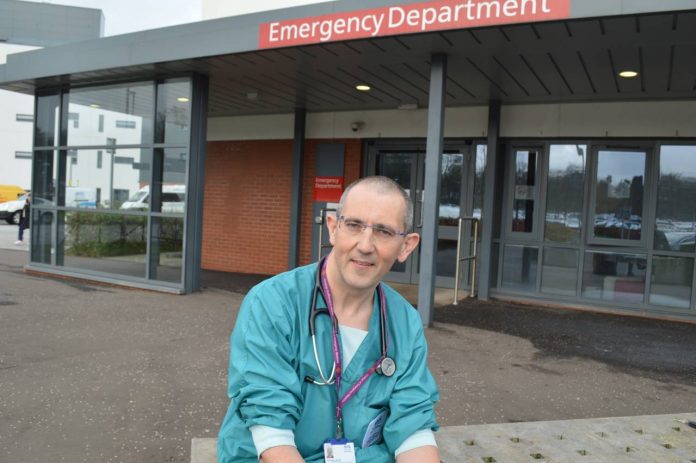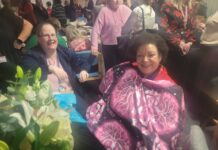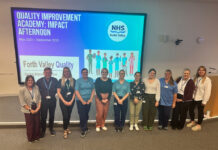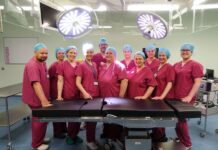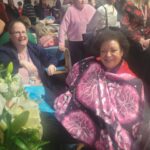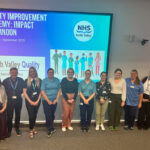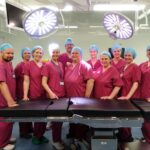There’ll definitely be no snow this festive season for Emergency Medicine Consultant Dr Roger Alcock, who will be working in temperatures of 30°C, treating Ebola victims in Sierra Leone.
Dr Alcock, who’s based at Forth Valley Royal Hospital, was among the first group of NHS volunteers to fly to Freetown on 22nd November 2014. He appeared not only on Channel 4 news, national radio and on various websites, but his reasons for taking on the challenge were quoted in newspapers the length and breadth of Britain.
Before setting off, the group underwent training at a specialist Ministry of Defence Unit. The drill included learning the different stages of assessment, suspected and confirmed cases of the disease, and spending 24 hours in a simulator in 30 degree heat to fully prepare for conditions in the field! The volunteers were also trained in the correct use and removal of protective equipment – including using UV lights to check for contamination – and practiced performing routine tasks such as taking blood to get used to moving around in the suits.
Dr Alcock also attended seminars including Creole language training and cultural awareness sessions. He said: “I recognised people needed help and assistance. They’re fairly under-developed countries and the Ebola crisis has made things very difficult for them.
“This is a medical humanitarian crisis and urgent medical help is required. It is important that we control and contain the virus to prevent its spread out-with West Africa. I have the training and experience to be able to go to Sierra Leone and have received tremendous support from colleagues, friends and family.”
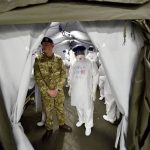 No stranger to working overseas, Dr Alcock was chief medic with Raleigh International in Namibia and has worked as an Expedition Doctor for Across the Divide expeditions in Cuba, Peru, China, Nepal, Tanzania and throughout the UK and Europe including Arctic Norway. He has previously been in Malawi as part of a project funded by the Scottish Government to develop and support emergency medicine in an emergency department in Blantyre. Earlier in 2014, he worked in Kurdistan delivering medical training and simulation in conjunction with the UN and the World Health Organisation.
No stranger to working overseas, Dr Alcock was chief medic with Raleigh International in Namibia and has worked as an Expedition Doctor for Across the Divide expeditions in Cuba, Peru, China, Nepal, Tanzania and throughout the UK and Europe including Arctic Norway. He has previously been in Malawi as part of a project funded by the Scottish Government to develop and support emergency medicine in an emergency department in Blantyre. Earlier in 2014, he worked in Kurdistan delivering medical training and simulation in conjunction with the UN and the World Health Organisation.
Asked if he had any concerns about travelling to Sierra Leone, he said: “I wouldn’t be human if I didn’t have concerns because Ebola is a serious disease. However, I have had world class Ebola-specific training and have been deployed as part of a well-resourced and experienced British military and civilian partnership team.”
Dr Alcock will return to work early in 2015 after a break and satisfactory health screening by specialists in tropical medicine in Liverpool.
